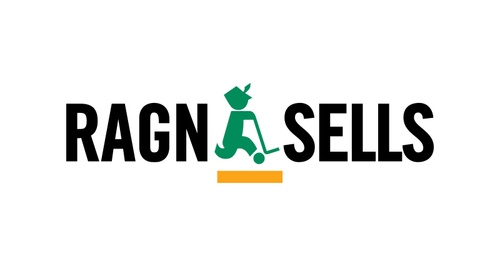Ragn-Sells responds to aquaculture proposal
 Havbruk
HavbrukThe Norwegian Minister of Fisheries recently presented the Norwegian government's draft aquaculture policy paper. Prior to the presentation, Ragn-Sells' Sustainability Director had the opportunity to share what Ragn-Sells expects to see in the final paper, which will now be reviewed by the Norwegian Parliament.
"We are pleased to see the government's focus on sustainable aquaculture. This is a critical step towards ensuring food security and environmental protection," says Pär Larshans, Sustainability Director at Ragn-Sells.
Meeting the challenges of the future requires a transition to a circular economy, where materials are reused and nutrients are returned to ecosystems instead of becoming waste. Environmental company Ragn-Sells' perspective on aquaculture includes three key points:
-
Increased food production: The world's population is projected to reach 10 billion by 2050. We must produce more food without increasing fishing in the oceans or expanding fertile land. Norway should lead by example and demonstrate to the world how we can double food production through aquaculture.
-
Mandatory sludge collection requirements: With rising temperatures, it is increasingly important to prevent nutrient runoff into water bodies. The largest sources of nutrient pollution today are agriculture and wastewater.
While it is challenging to quickly reduce agricultural runoff, stricter requirements for nitrogen and phosphorus removal must be implemented in industrial production and treatment plants.
-
Phosphorus recycling for food production: Global food production depends on access to phosphorus, which poses a geopolitical challenge. By 2100, the world could rely on a single mine in Morocco for phosphorus. Therefore, it is essential to mandate the recycling of phosphorus back into food production.
Canada serves as a good example, aiming to reduce dependence on phosphorus from the US. Ragn-Sells plans to export phosphorus from its first factories to Canada, where regulations allow use based on quality rather than origin. Selling high-quality phosphorus can help finance this new value chain.
Sustainable innovation is always best achieved through collaboration. Ragn-Sells is also working with fish farmers, researchers, and industry colleagues on a new EU-funded project to collect and repurpose Norwegian fish sludge. Collecting the sludge and turning it into valuable resources can reduce the environmental footprint of fish farmers and ease the burden on the fjords at the same time. This is not only important for Norway, since it provides a role model for coastal areas all around the world.
“Mandating the use of recycled phosphorus in food production and influencing regulations to prioritise quality over origin is the determining factor,” says Ole Arthur, CEO Ragn-Sells Havbruk.
FACTS: Aquaculture, or fish farming, is the practice of breeding, raising, and harvesting fish, shellfish, and aquatic plants in controlled environments. The aim is to enhance food production and reduce pressure on wild fish populations.
For further information, please contact:
Pär Larshans, Sustainability Director at Ragn-Sells, +46 (0)70 927 29 63, par.larshans@ragnsells.com
Debby Porter Laffitte, Press Officer at Ragn-Sells, +46 (0)10 723 24 16, press@ragnsells.com
About Ragn-Sells Group
The environmental company Ragn-Sells converts waste into raw materials that can be used over and over again. Ragn-Sells drives the transition to a circular economy through solutions that reduce its own and other actors' environmental and climate impact. Ragn-Sells is a family owned corporate group founded in 1881. The company operates in four countries and employs 2,760 people. In 2024, Ragn-Sells’ turnover was SEK 8.8 billion. www.ragnsells.com
Contacts
Press Officer
- press@ragnsells.com
- +46709272400


